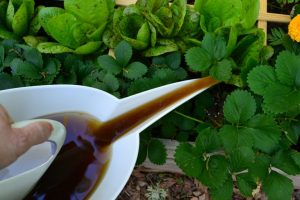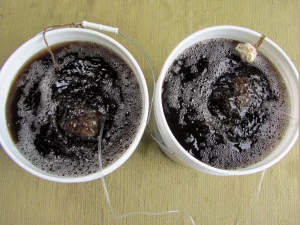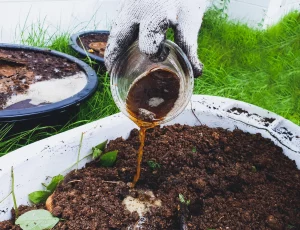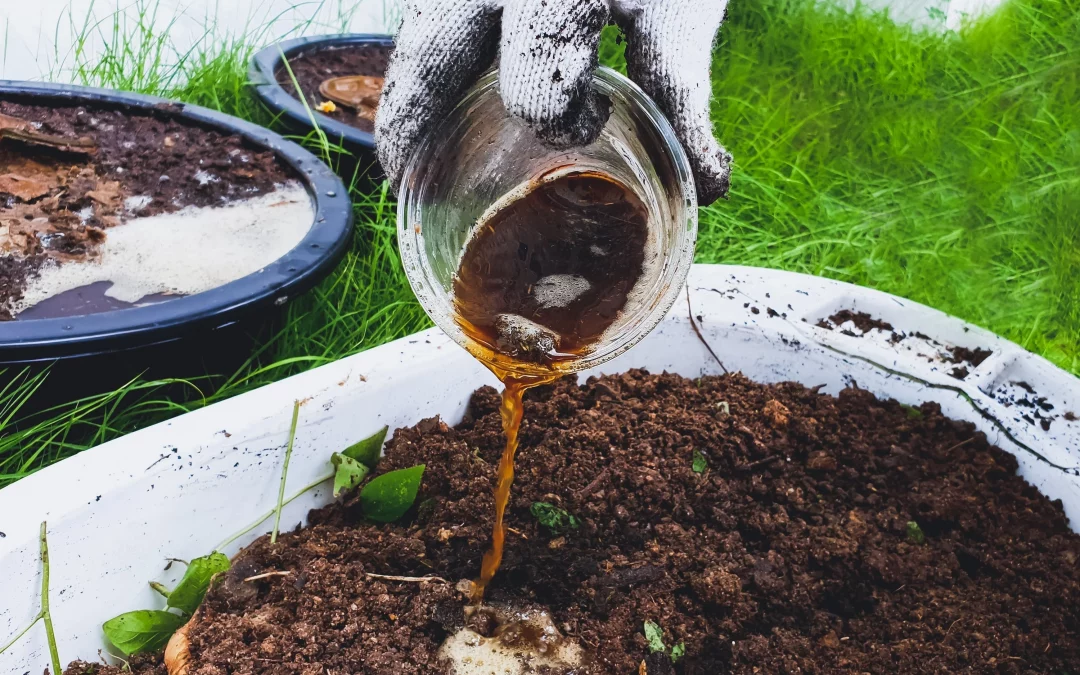Contents
- 1 Compost Tea for Indoor Plants (Easy Natural Feed Recipe)
- 1.1 Why Use Compost Tea Indoors?
- 1.2 What You’ll Need to Make Compost Tea
- 1.3 Easy Compost Tea Recipe (Step-by-Step)
- 1.4 How to Use Compost Tea for Indoor Plants
- 1.5 Pro Tips for Success
- 1.6 Common Mistakes to Avoid
- 1.7 FAQs About Compost Tea for Indoor Plants
- 1.8 Related Articles
- 1.9 Final Thoughts on Compost Tea for Indoor Plants
Compost Tea for Indoor Plants (Easy Natural Feed Recipe)
If your indoor plants look dull or slow to grow, they might be missing key nutrients. Compost tea is a simple, natural way to give them a powerful boost — and you can make it right at home. This easy guide will show you how to brew compost tea, feed your indoor plants safely, and see real results fast.
Why Use Compost Tea Indoors?
Compost tea is liquid gold for indoor plants. It’s packed with beneficial microbes, nutrients, and organic matter that strengthen roots, improve soil health, and boost growth naturally.
Benefits of Compost Tea:
Fast nutrient delivery: Liquid form feeds roots immediately.
Improves soil life: Adds helpful bacteria and fungi.
Strengthens plants: Helps resist diseases and pests.
Eco-friendly: 100% natural alternative to chemical fertilizers.

What You’ll Need to Make Compost Tea
You don’t need anything fancy — most of this can be made using simple tools at home.
Compost: Use mature compost or worm castings.
Water: Preferably rainwater or dechlorinated tap water.
Container: A bucket or large jar (2–5 liters).
Aeration: Aquarium air pump or simply stirring frequently.
Strainer or cheesecloth: For filtering before use.
A Compost Tea Brewing Kit on Amazon makes this process even easier — it includes aeration tools, tubing, and a fine mesh bag for brewing.
Easy Compost Tea Recipe (Step-by-Step)
- Fill container: Add 4 liters (1 gallon) of water. Let it sit 24 hours to remove chlorine.
- Add compost: Mix in about 1 cup of compost or worm castings.
- Aerate: Use an air pump or stir 2–3 times a day to keep oxygen flowing.
- Brew: Let the mixture steep for 24–36 hours. It should smell earthy, not rotten.
- Strain: Pour through a cloth or fine mesh to remove solids.
- Use immediately: Compost tea loses potency after 1–2 days.

How to Use Compost Tea for Indoor Plants
Watering method: Dilute 1 part compost tea with 2 parts water. Pour directly into the soil.
Foliar spray: Use a spray bottle to mist leaves for faster absorption.
Frequency: Apply every 2–3 weeks for consistent results.
These Fine Mist Plant Sprayers on Amazon work perfectly for foliar feeding — gentle, even spray without oversaturation.
Pro Tips for Success
✅ Use compost from chemical-free sources.
✅ Don’t brew longer than 48 hours (it can go anaerobic).
✅ Shake or stir before each use to keep microbes alive.
✅ Avoid storing leftovers — always use fresh batches.

Common Mistakes to Avoid
Bad smell: Means it went anaerobic — start over with more aeration.
Using too strong: Always dilute to avoid root burn.
Using poor compost: Low-quality compost = low-quality tea.
Skipping filtration: Solids can clog watering cans or sprayers.
For more tips on natural and organic feeding, check the Royal Horticultural Society’s guide to composting.
FAQs About Compost Tea for Indoor Plants
1. Can compost tea replace fertilizer?
Yes — for most indoor plants, compost tea provides enough nutrients naturally.
2. How often should I apply compost tea?
Every 2–3 weeks during active growth; once a month in winter.
3. Can I use worm castings instead of compost?
Absolutely! Worm castings make excellent, microbe-rich tea.
Related Articles
Final Thoughts on Compost Tea for Indoor Plants
Compost tea is one of the easiest, most affordable ways to give your indoor plants a healthy, organic boost. With just compost, water, and a bit of patience, you’ll see greener leaves, faster growth, and stronger roots. Brew your first batch today — your plants will thank you for it.

